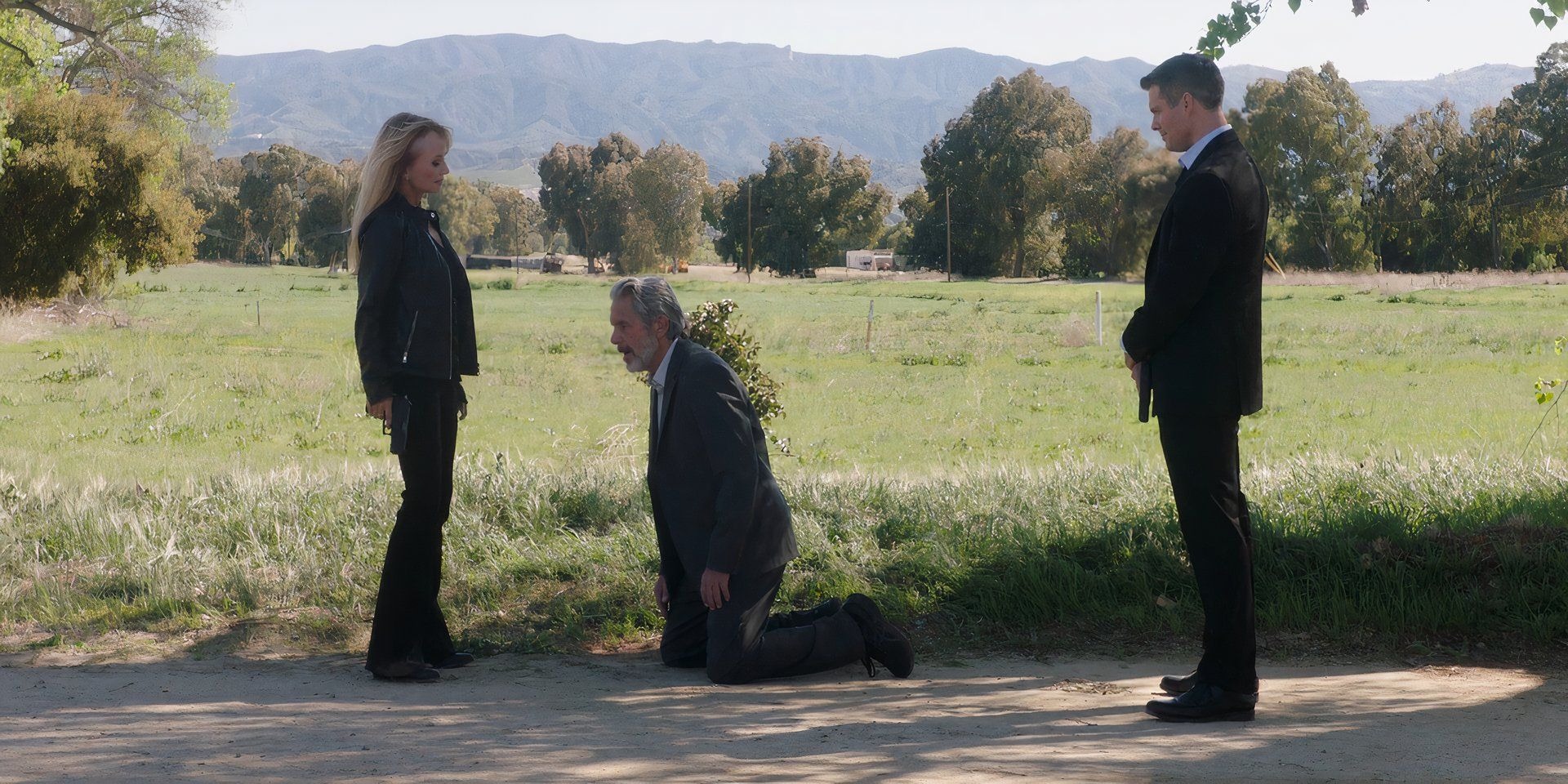
Introduction: NCIS Season 22’s Missed Opportunity
For over two decades, NCIS has delivered gripping storylines, beloved characters, and edge-of-your-seat villains. But in Season 22, the long-running procedural introduced one of its most compelling antagonists in years—only to fumble the finish line with a finale that left fans scratching their heads. If you’re wondering why the show dropped the ball so hard, you’re not alone. Let’s dive into the hype, the buildup, and ultimately, the disappointment that Season 22’s finale served up.
The Rise of an Exceptional Villain
A New Threat With Old-School Energy
Season 22 started strong. The introduction of a layered, strategic villain felt like a breath of fresh air—someone who could go toe-to-toe with the team and outthink them at every turn. The writing gave us a foe reminiscent of NCIS legends like Ari Haswari and Harper Dearing, but with a modern twist.
What Made This Villain Stand Out
This wasn’t just another criminal of the week. The villain’s motivations were complex, their actions deeply personal, and their tactics terrifyingly precise. They didn’t just challenge the NCIS team physically—they challenged them morally and emotionally.
The Season’s Momentum Built Around the Villain
Strategic Teasing Across Episodes
Writers teased this villain’s identity through breadcrumbs over multiple episodes. Each appearance or hint felt intentional and crafted to keep viewers on edge. Fans theorized. Reddit threads exploded. It felt like classic NCIS intrigue was back.
A Threat That Touched the Whole Team
Unlike past minor antagonists, this villain hit close to home for everyone—from Director Vance to McGee and Torres. There were emotional consequences, making the storyline feel urgent and deeply personal.
The Cop-Out Finale: What Went So Wrong?
An Abrupt and Lazy Wrap-Up
The finale promised a massive showdown. What we got instead was a rush-job resolution. No shocking twists, no satisfying confrontation—just a limp unraveling of a character that had once seemed unstoppable.
A Disservice to Character Development
Worse still, the finale barely scratched the surface of the villain’s potential. All that buildup? Swept away in a clumsy ending that failed to justify the earlier suspense. The villain became a plot device instead of a worthy adversary.
Fan Reactions: Outrage and Disappointment
Social Media Backlash
Twitter (or X), Reddit, and Facebook lit up after the finale aired. Fans expressed their frustration, calling it “the weakest payoff in years” and comparing it to infamous letdowns like Game of Thrones’ final season. The most common sentiment? “They wasted a perfect setup.“
Even Critics Noticed the Decline
Entertainment journalists didn’t hold back either. Reviews described the finale as “tonally inconsistent” and “creatively bankrupt,” especially compared to the emotional investment the villain arc demanded.

NCIS Has Done Better—And Fans Know It
A Legacy of Great Villains
NCIS isn’t new to iconic villains. Ari haunted Gibbs for seasons. Harper Dearing’s terror campaign left the team shattered. These antagonists had arcs that mattered—their endings felt earned. This new villain had all the makings of joining that elite group.
Where Season 22 Fell Short
Instead of elevating the villain, the writers leaned on convenience. The stakes evaporated. The villain’s defeat felt accidental, not earned. It left viewers wondering if the writers lost confidence—or simply ran out of ideas.
How the Finale Should’ve Gone
Build to a Climax, Not a Shortcut
Fans expected a dramatic, emotionally charged standoff. Maybe even a sacrifice. Instead, the finale undercut its own narrative, opting for safety over suspense. What it needed was grit, not gloss.
Leave Room for Return or Redemption
One missed opportunity? Letting the villain escape, wounded but alive. That would have left the door open for a recurring arc—something NCIS has historically done well.
Was It a Case of Network Interference?
The Ratings Game and Playing It Safe
There’s speculation that CBS played it too safe, perhaps fearing backlash if things got too dark. But in trying not to rock the boat, they capsized fan expectations. Risk-averse storytelling rarely pays off long-term.
Behind-the-Scenes Drama?
Some fan theories suggest behind-the-scenes changes or rewrites watered down the ending. There’s no confirmation—but the abruptness of the finale does make you wonder.
The Bigger Problem With NCIS Season Finales
A Pattern of Weak Resolutions
Let’s be honest—NCIS hasn’t always nailed its finales in recent years. Several have left storylines open or concluded them too cleanly. Season 22 just happens to be the most glaring example of this growing trend.
Playing It Too Safe in the Streaming Era
In a time where shows like Succession and The Last of Us take narrative risks, NCIS sometimes feels stuck in the early 2000s. Safe storytelling is fine—until it’s not.
The Missed Legacy This Villain Could’ve Had
Wasted Potential for a Long-Term Nemesis
The Season 22 villain could’ve been a recurring nightmare—a Moriarty to Gibbs’ Holmes (or Torres’ now). But instead of building an ongoing cat-and-mouse game, the writers chose the easy way out.
Character Growth Opportunities, Squashed
This villain pushed every team member into uncharted territory. But we’ll never know how that pressure could’ve shaped them over multiple seasons. The finale slammed the door shut.
Where Does NCIS Go From Here?
Season 23 Has to Redeem the Narrative
There’s still hope. Season 23 could acknowledge the misstep, explore lingering consequences, or even reveal there was more to the villain’s arc than meets the eye. But it’ll take smart, bold writing to win fans back.
Fans Want Substance, Not Surprises
At the end of the day, fans want layered villains, emotional payoffs, and storytelling that respects the audience. Season 22’s finale forgot that.
Why This Matters More Than Ever
The Legacy of a Show With 22 Seasons
At 22 seasons in, NCIS isn’t just a show—it’s an institution. But with legacy comes responsibility. Fans deserve thoughtful storytelling that doesn’t waste their time or investment.
One Misstep Doesn’t Break a Show—But Many Might
One bad finale won’t tank NCIS, but repeated narrative cop-outs will erode loyalty. And in an age where viewers can switch shows with one click, that’s a risk NCIS can’t afford to take.
Conclusion: A Finale That Deserved More Fire
Season 22 of NCIS introduced a villain that had all the ingredients to become legendary. But instead of embracing the chaos and drama that could’ve come with a daring conclusion, the show delivered a finale that fizzled. The result? A storyline that once promised fireworks ended with a whimper. Let’s hope the writers take notes—and come back swinging in Season 23.
FAQs
1. Who was the villain in NCIS Season 22, and why was it significant?
The villain was a deeply strategic and emotionally manipulative adversary who challenged the team on multiple levels. They were considered one of the most compelling foes in recent seasons due to their personal impact on the main characters.
2. Why did fans feel let down by the NCIS Season 22 finale?
Fans felt the finale rushed the conclusion of a complex arc, giving the villain an underwhelming sendoff that didn’t match the buildup. The lack of emotional or narrative payoff left many disappointed.
3. Has NCIS fumbled season finales before?
Yes, NCIS has occasionally delivered finales that felt too tidy or rushed. While the show has had stellar conclusions in the past, some recent seasons have shown a trend of underwhelming wrap-ups.
4. Could the villain return in Season 23?
While it seems unlikely based on the finale’s events, a clever twist could bring the villain back. It depends on whether the writers choose to retcon or expand on what we saw.
5. What should NCIS do to keep fans engaged in future seasons?
The show needs to prioritize character-driven storytelling, take narrative risks, and allow consequences to play out over multiple episodes. Giving villains real weight and lasting impact would go a long way